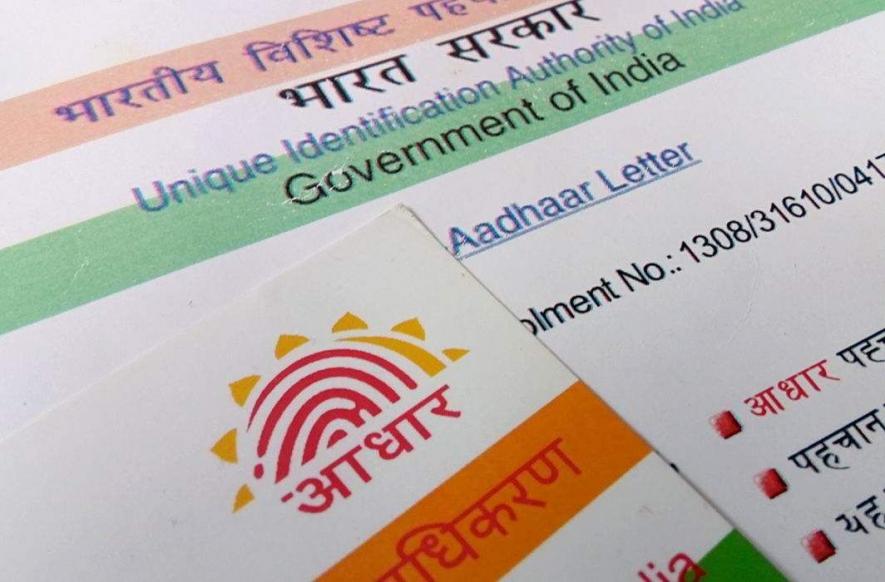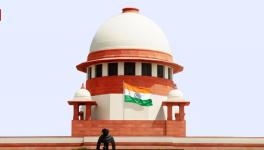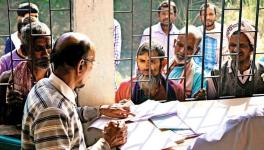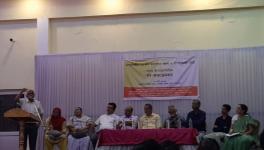Aadhaar Project Unconstitutional in Design and Implementation, Says Report

Image Courtesy: India Legal
The Aadhaar project was found to be unconstitutional in design as well as implementation, by a jury at the Aadhar Tribunal organised by the Rethink Aadhaar campaign. According to the Aadhar Tribunal Jury Report, which was released on the evening of Friday, October 2, the jury also found the legislative process through which the Aadhaar Act, 2016, came into being to be flawed. The report said, “While three of the jury members found that there may have been a legitimate state interest in envisioning the Aadhaar infrastructure, they were unanimous in the failure of the test of proportionality.”
In September 2018, a Constitution Bench of the Supreme Court (SC) of India unanimously limited the scope of the Aadhaar project, deeming it unconstitutional for private entities to access data collected for issuing Aadhaar numbers on the grounds that commercial exploitation of such data (collected and maintained for state purposes) cannot be allowed by any person. However, the Court - by a majority of 4:1 - allowed the State to make enrolling for an Aadhaar number mandatory to access any welfare benefit or subsidy in the nature of “doles” paid out from the Consolidated Fund of India. The report said, “In holding so, the Court did not engage with the evidence presented before it relating to widespread unjust exclusion and human rights violations.” The Court also upheld linking of the Aadhaar number to the Income Tax department’s Permanent Account Number (PAN) under Section 139AA of the Income Tax Act.
While review petitions challenging the Aadhaar judgment are pending hearing by the SC, the Rethink Aadhaar campaign, the Right to Food campaign, Mazdoor Kisan Shakti Sangathan, Satark Nagarik Sangathan, NREGA Sangharsh Morcha, Pension Parishad, Jan Swasthya Abhiyan, People’s Union for Civil Liberties, Cashless Collective, Samolachana, National Alliance of People’s Movements, Libtech India, Internet Freedom Foundation, Article 21 Trust, and others agreed on the need for a People’s Tribunal on Aadhaar-related issues that will highlight the actual social impact in the 10 years of the project’s existence, with particular emphasis on the scenario subsequent to the SC judgment.
During the Tribunal, which was held on February 29 and March 1, 2019, the jury was presented with testimonies – oral, printed, or videographed – along with academic research, expert commentaries, and analysis of the laws and policies governing the project. They were asked to examine holistic perspectives covering the welfare governance aspects as well as technological governance aspects of the Aadhaar project, to evaluate and understand the project’s human cost, continuing legal ramifications, and future implications for Indians.
Also read: 42 Starvation Deaths in 2 Years, Campaign Demands Food for Everyone
The jury expressed that a welfare state is constitutionally bound to provide benefits and services to citizens which cannot be made conditional either on a particular means of identification, or require citizens to mandatorily part with their personal information, including biometric information. The jury also observed that the use of biometrics to uniquely identify citizens in a country as vast and diverse in India throws up many challenges. “This, combined with the fact that the technology was implemented without having been tested adequately, reflects the insincerity with which the project has been approached from the beginning,” the report said.
The jury also took cognisance of the fact that patients were being turned away from hospitals for not possessing Aadhaar numbers, which goes against the tenets of universal access to public health. At the Tribunal, evidence was also presented of denial of other benefits like pensions because their Aadhaar numbers were wrongly linked to different bank accounts and no redressal mechanisms for such errors.
The report said, “The passage of the Aadhaar (Targeted Delivery of Financial and other Subsidies, Benefits and Services) Act, 2016, as a Money Bill prevented Rajya Sabha from making legislative changes to it and the Bill never being scrutinised by a Parliamentary Committee or going through a process of public consultation further drove the jury to find the Aadhaar project unconstitutional.”
The jury also found that the Supreme Court’s judgment on the constitutionality of the Aadhaar project failed to adequately deal with the evidence related to exclusions, and the application of the test of proportionality of Aadhaar was flawed. The court’s recommendations on security such as deleting metadata, and to plug loopholes to prevent exclusions do not seem to have been put into practice, as was indicated by the evidence presented before the Tribunal Jury.
One of the jury members pointed out that cross-linking databases enabled by Aadhaar violates the rights of people in terms of loss of wages, livelihood and dignity. An example of this was presented by Nikhil Dey, co-convener of the Mazdoor Kisan Shakti Sangathan, who found that despite there being no government order to link pensions with Aadhaar, it was found that the pensions of 10 lakh people in Rajasthan were stopped because their Aadhaar numbers were not linked with their bank accounts in which they were to receive the pensions.
Also read: Parliament Session: Govt Continues to Undermine Criticism of New Laws
In one of the villages, pension was stopped as people were declared dead, but it was found that nine out of the 11 people declared dead were actually alive. Another jury member observed that Aadhaar has a clear theory of exclusion due to the Aadhaar-based biometric authentication. The exception handling is poorly and ambiguously specified, and is hence unsound. In view of this, the only reasonable result is that biometric authentication for welfare disbursal clearly fails the proportionality test and hence is unconstitutional.
Get the latest reports & analysis with people's perspective on Protests, movements & deep analytical videos, discussions of the current affairs in your Telegram app. Subscribe to NewsClick's Telegram channel & get Real-Time updates on stories, as they get published on our website.
























